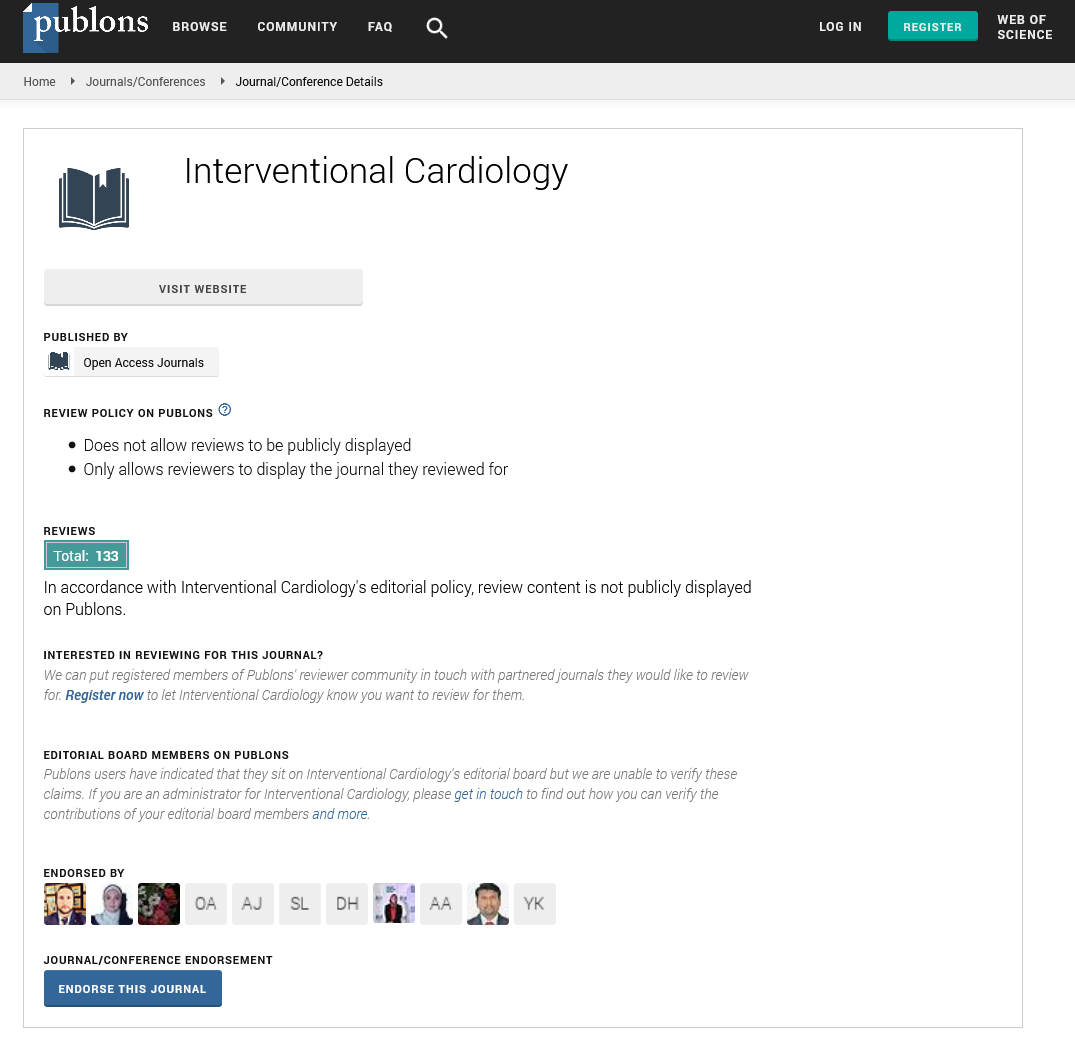Letters - Interventional Cardiology (2018) Volume 10, Issue 2
Interference With Creatinine Estimation By Impenem Cilastatin In Jaffes Kinetic Method
- Corresponding Author:
- Nigam PK
Department of Cardiology
King George’s Medical University, UP, Lucknow, India
Tel: +919235775577
E-mail: p_nigam1@yahoo.com
Received date: March 27, 2018 Accepted date: April 23, 2018 Published date: April 30, 2018
Abstract
Keywords
Interference, Creatinine, Imipenem, Cilastatin
False estimates of serum creatinine have been found due to interference by both endogenous and exogenous substances which have been attributed to factors such as decreased or inhibited tubular secretion of creatinine, interference with serum creatinine assays and increased production of creatinine [1,2]. Recently, the serum creatinine of a patient admitted in our intensive coronary care unit was found to be 7.0 mg/dl. However, his serum urea was within normal limits but serum sodium was too high. Therefore, suspecting a faulty blood sample another blood sample was collected. This new sample gave serum creatinine 1.0 mg/dl and the sodium value was within normal limits. Later on we came to know that the nurse had collected the previous blood sample from the indwelling catheter.
The patient was on three intravenous antibiotics namely Levofloxacin, Linezolid and Imipenem + Cilastatin. Therefore, the three antibiotics were tested for their interference with Jaffe’s kinetic method. The results showed that it was Imipenem + Cilastatin which caused the interference (Table 1). The interference by Imipenem + cilastatin was very high at the level of 500 mg/10 ml which may be due to non-creatinine chromogen formation with alkaline picrate reagent. However, it was neglegible at 500 mg/ dl (the dilution generally used for infusion). The high level of serum creatinine in the concerned patient may be due to improperly dissolved powder of the antibiotic at the time of infusion which might have deposited in the catheter and might have mixed with the blood when the nurse collected the blood from the indwelling catheter. The interference by Levofloxacin and Linezolid was negligible.
| Antibiotic | Antibiotic concentration? added creatinine concentration | Estimated non-creatinine/ creatinine chromogen(mg/dl) |
|---|---|---|
| Levofloxacin | 500 mg/dl | 0.2 (non-creatinine chromogen) |
| Linezolid | 600 mg/300 ml | 0.1 (non-creatinine chromogen) |
| (Imipenem 250 mg + Cilastatin 250 mg) | 500 mg/dl | 0.3 (non-creatinine chromogen) |
| (Imipenem 250 mg + Cilastatin 250 mg) | 500 mg/10 ml | 7.0 (non-creatinine chromogen) |
| (Imipenem 250 mg + Cilastatin 250 mg + added creatinine*) | 500 mg/dl + 2 mg/dl* | 2.1 (non-creatinine chromogen + creatinine chromogen) |
| (Imipenem 250 mg + Cilastatin 250 mg + added creatinine*) | 500 mg/10 ml + 2 mg/dl* | 9.4 (non-creatinine chromogen + creatinine chromogen) |
Table 1: Antibiotic interference with creatinine estimation
However, it was not clear whether the Imipenem or the Cilastatin was the interfering agent. Moreover, the high serum sodium in the faulty blood sample may be due to sodium salt of Cilastatin. This is a preliminary study. Therefore, more studies with other antibiotics which have not been studied for their interference with Jaffe’s as well as enzymatic method for creatinine estimation are needed.
Conclusion
The purpose of this letter is to make awareness to the analysts that whenever any unusually elevated levels of serum creatinine are found which do not correlate clinically then the best option is to repeat the test with a fresh blood sample. And the personnels collecting the blood sample should strictly be instructed not to collect blood from indwelling catheter. The timing of blood collection in patients receiving the antibiotics should also be ascertained [3].
References
- Samra M, Abca A C. False estimates of elevated creatinine. Perm J 16:51 – 52, (2012).
- Nigam PK, Chandra A. Positive and negative false estimates of serum creatinine. Interven Cardiol 9:163 – 167, (2017).
- Ducharme M P, Smythe M, Strohs G. Drug induced alterations in serum creatinine concentration. Ann Pharmacol 27: 622 – 633, (1993).

